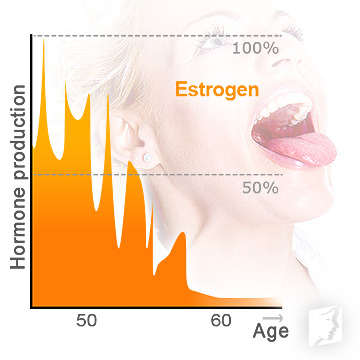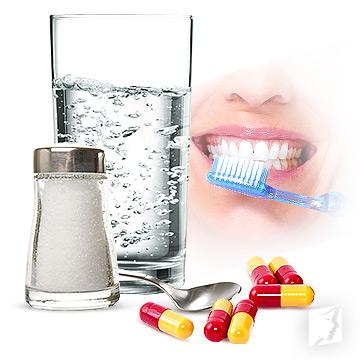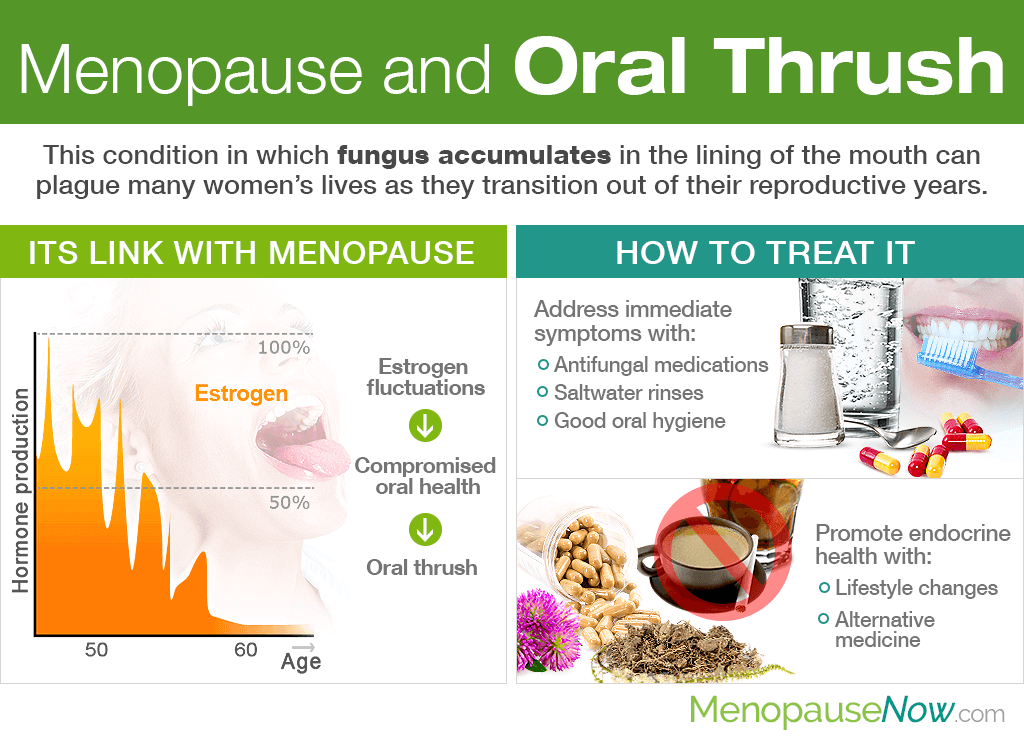Women may start experiencing a variety of gum problems as they transition through menopause, feeling as if these woes are just adding to the laundry list of menopause symptoms that may already be plaguing them. However, suffering from oral thrush as one of them does not have to be the new norm.
Continue reading to learn more about menopause and oral thrush, such as what it is, their link, and how to treat the symptom for long-lasting oral health.
What is Oral Thrush?
Oral thrush - also known as oral candidiasis - is a condition in which the fungus Candida albicans accumulates in the lining of the mouth.
The fungus can cause creamy white lesions that can spread to the roof of your mouth, gums, tonsils, or throat; slight bleeding; cracking and redness at mouth corners; loss of taste; redness; burning; or soreness, among other symptoms.
What's the Connection with Menopause?

Oral alterations that occur throughout the menopausal transition are frequently related to drastic hormonal fluctuations, particularly of estrogen.
Moreover, because oral mucosa contains estrogen receptors, variations in the hormone's levels directly affect the oral cavity, causing gum problems like gingivitis, burning mouth syndrome (BMS), and more.
Women are at an increased risk of having oral thrush during menopause if they have:
Weakened immunity that is unable to repel fungi
Dentures, which increase the risk of having dry mouth, elevating the odds of having oral thrush
Medications, like antibiotics, inhaled corticosteroids, or prednisone
Vaginal yeast infections, which are caused by the same fungus
Diabetes, during which sugar in the saliva can encourage the growth of candida
How Can I Treat It?

Women suffering from oral thrush in menopause will first be provided treatment options to address the immediate symptoms, including, but not limited to:
Antifungal medication, which can be taken as a lozenge, tablet, or liquid
Denture disinfectant to avoid reinfection (for whom it applies)
Saltwater rinses composed of a ½ teaspoon of salt in one cup of warm water
Good oral hygiene that consists of brushing and flossing regularly as well as replacing an infected toothbrush
Once the thrush is under control, menopausal women will be directed to treat the underlying cause so as to avoid its return. This often includes measures to promote endocrine health, such as:
Healthy diet of plant-based lean protein, complex carbs, and healthy fats
Regular menopause exercise for 30 minutes a day, five days a week
Addiction control of caffeine, alcohol, tobacco, excess stress, etc.
These menopause symptom treatments often also involve the use of alternative medicine proven to reap results for long-term symptom relief, not only of oral thrush, but also mood swings, hot flashes, night sweats, and more.
Key Takeaways
Oral thrush is the accumulation of fungus in the lining of the mouth, causing white lesions, bleeding, loss of taste, and burning, among other symptoms. The condition is relatively common in women going through menopause because of estrogen fluctuations compromising the health of the oral mucosa. Nevertheless, there are effective methods available to help women treat it, including those that address the immediate symptoms and those that foster long-term endocrine health. Don't let oral thrush during perimenopause put a damper on these transformative years. Take action today!
Sources
- Dahiya, P. et al. (2013). Burning Mouth Syndrome and Menopause. International Journal of Preventive Medicine, 4(1), 15-20. Retrieved July 16, 2019, from https://www.ncbi.nlm.nih.gov/pmc/articles/PMC3570906/
- Grover, C.M. et al. (2014). Crosstalk between hormones and oral health in the mid-life of women: A comprehensive review. Journal of International Society of Preventive & Community Dentistry, 4(Suppl 1), S5-S10. doi: 10.4103/2231-0762.144559
- Mayo Clinic. (2018). Oral thrush: Symptoms & causes | Diagnosis & treatment. Retrieved July 16, 2019, from https://www.mayoclinic.org/diseases-conditions/oral-thrush/symptoms-causes/syc-20353533 | https://www.mayoclinic.org/diseases-conditions/oral-thrush/diagnosis-treatment/drc-20353539
- Mutneja, P. et al. (2012). Menopause and the oral cavity. Indian Journal of Endocrinology and Metabolism, 16(4), 548-551. doi: 10.4103/2230-8210.98007

